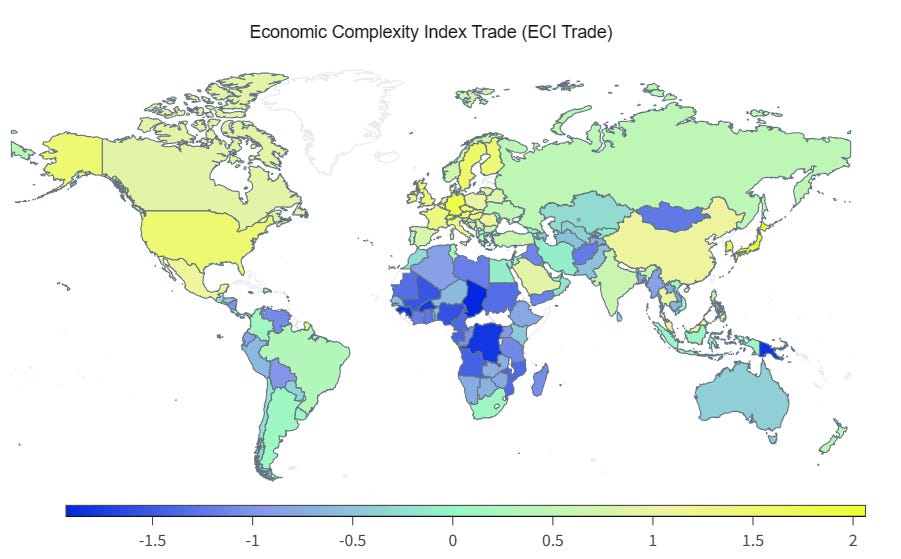📈 Invest in Economically Complex Emerging Markets
That's the theory of the Venezuelan Harvard Professor Ricardo Hausmann and it's worthy of a brief analysis.
Theory of Economic Complexity
Adam Smith postulated that the source of wealth of nations is the division of labor and its proper organization. The theory of economic complexity goes further and suggests that the division of knowledge should also be considered.
Complex economies require different bits of knowledge, in different people’s heads, and the proficient networking of those pieces of knowledge (i.e., minds) to create an entity unified around a shared purpose. Complex economies permit the whole to know more than its individual parts. A greater magnitude of value is created in these instance than is the case with non-complex activities such as exporting raw timber.
Why does this matter to investors?
Economic complexity correlates highly to relative GDPs of nations, and the spending power of its participants. More complex economies, even when they have low GDPs, tend to grow faster in the future. The converse is also true that wealthy countries with low complexity tend to suffer more prolonged economic downturns, and experience slower future growth.
Listen to the Odd Lots podcast interview below with Harvard’s Ricardo Hausmann and founder of the theory:
Ricardo Hausmann
One reason not to listen to the Venezuelan academic is that Professor Hausmann was the Minister of Planning and former Head of the Presidential Office of Coordination and Planning (1992 - 1993) of Venezuela. The good news is he held these roles prior to the Hugo Chavez societal wrecking ball taking the reigns of power.
Hausmann previously served as the first Chief Economist of the Inter-American Development Bank (1994 - 2000). Prior to arriving at Harvard he advised governments, microfinance institutions, and other companies operating in the development context. He’s introduced popular economic concepts in the world of development finance including original sin, growth diagnostics, self-discovery, dark matter, the product space, as well as economic complexity.
LATAM and Africa Rankings
The chart shows the top 10 nations from LATAM and Africa, ranked by complexity from 2015 to 2021. The rankings are derived by looking at export data, and assessing the complexity of the activities associated with each export.








